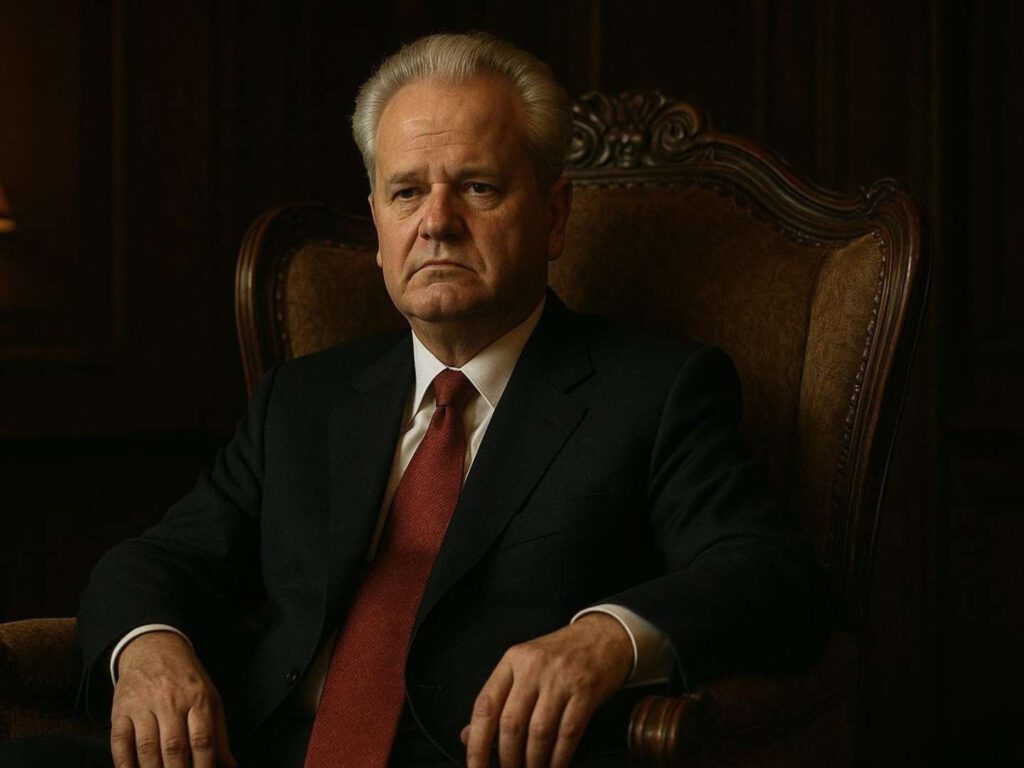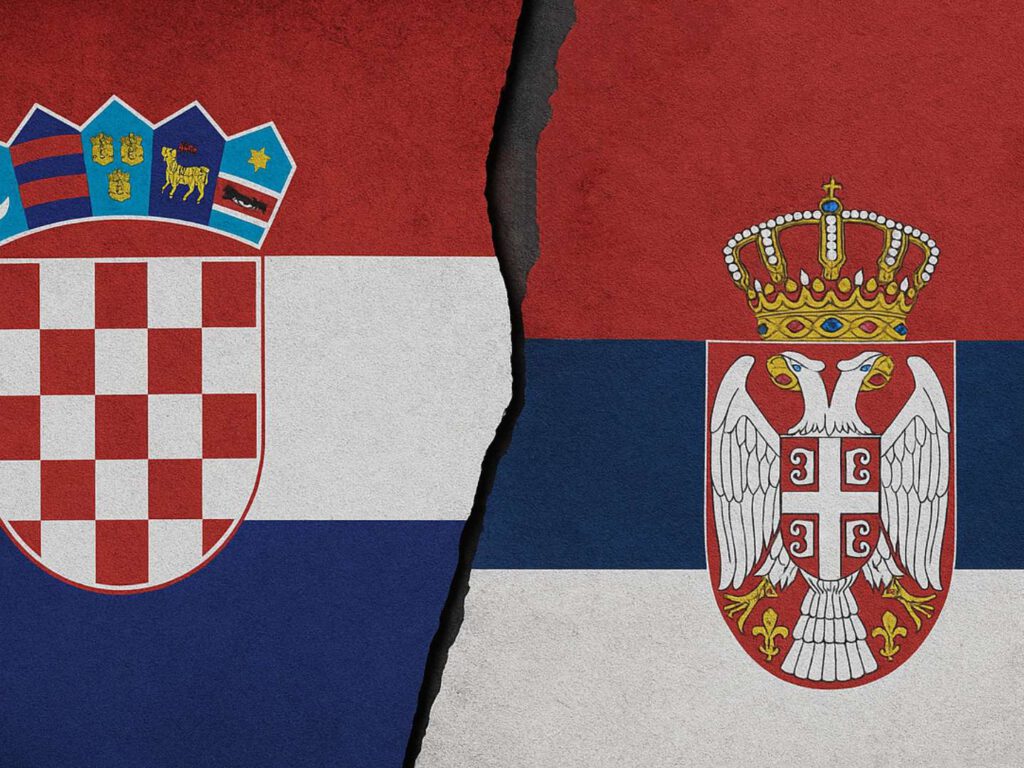Undoing Democracy: How Georgian Dream Reshaped Georgia in Half a Year
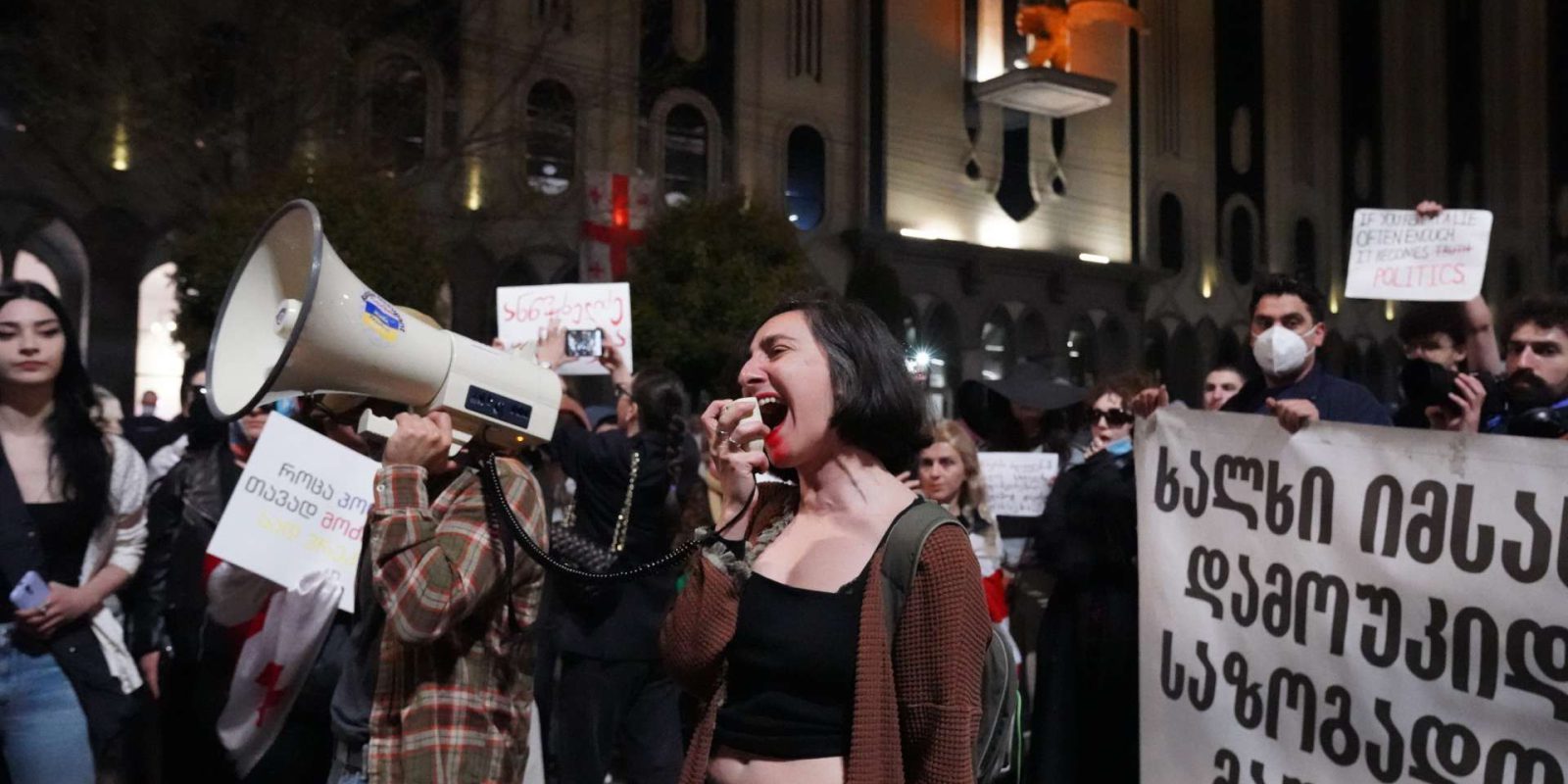
Um den Artikel auf Deutsch zu lesen, hier klicken.
Six months. That is all it took for Georgia to shift from a struggling democracy to a country now widely described as teetering on the edge of authoritarianism. In this short time, the ruling party Georgian Dream (GD) has implemented sweeping reforms that dismantled key pillars of democratic governance, silenced dissent, and concentrated power in the hands of a few. The results have been swift and devastating: opposition leaders imprisoned, independent media and civil society crippled, and citizens arrested simply for protesting.
The turning point came on November 28, 2024, when Prime Minister Irakli Kobakhidze announced that Georgia would suspend its EU membership aspirations until 2028. Citing alleged Western “blackmail”, the move stunned the public and enraged pro-European Georgians. What had previously been a slow erosion of democratic norms suddenly became a full-fledged authoritarian push. The declaration triggered mass protests, but instead of dialogue, the government responded with repression.
By mid-2025, the transformation was undeniable.
Giga Bekauri is a representative of the Independent Trade Union, which represents a solidarity group of workers whose goal is to establish decent working conditions in the fields of culture and media. He said that under Georgian Dream’s rule, Georgia has experienced both the peak of its democratic development and one of its deepest political crises, bordering on authoritarianism. “We cannot call it a fully authoritarian regime”, he says, “it is more of a democracy decay. Still, some online independent media and civil organizations operate and some democratic movements and principles exist in this country.” Bekauri says, that the contours of authoritarianist shape appeared in Georgia’s socio-political life since the last 2-3 years. “The past six months have been a clear and direct attempt to establish authoritarian rule. Whether these contours will solidify into a concrete form is another question—only time will tell”, says Bekauri.
Legalizing Authoritarianism Step-by-step
Rather than resort to a violent coup, the Georgian Dream used legislation as its weapon of choice. One of the first major steps was the reintroduction and passage of the so-called foreign agents law. Any civil society group, media outlet, or individual receiving over 20 % of their funding from abroad was required to register as acting “in the interest of a foreign power”. These organizations and individuals became subject to invasive monitoring, public blacklisting, and crippling fines.
This law was followed by an even more aggressive version modelled after the U.S. FARA law—though only in name. Georgia’s adaptation included prison time, applied to individuals, and gave the prime minister’s anti-corruption bureau unchecked discretion to decide who qualifies as a “foreign agent”.
Alongside these laws, sweeping changes were made to Georgia’s broadcasting regulations. New rules empowered the government to impose “coverage standards” on broadcasters and ban foreign funding. Major independent outlets like Formula and Mtavari were sued for using critical language such as “regime’s court” or “Ivanishvili’s parliament”. Many more restrictions for online media are in progress.
Access for journalists to the parliament was also curtailed under a new code of conduct. Reporters now are banned for merely asking uncomfortable questions. In a single legislative season, Georgia turned its media landscape into a battleground—and it is losing its independent voices. A photographer of the online media Publika, Mindia Gabadze, expressed his concerns regarding the new law that doesn’t allow any media or person except the public broadcaster to stream, photograph or record the court sessions. “Online media were never considered as ‚real‘ media in this country. I had multiple occasions in the supreme court building, where I was kicked out by the judge.” Gabadze was beaten by “titushkas” (people dressed in civil clothes, hired by the police or ministry of internal affairs to beat or intimidate people) during the daytime while working on the main street of Tbilisi. The police stood next to him, but did nothing. “Regardless of enough evidence, none of the titushkas were punished for their actions nor the policemen for their inaction”, Gabadze recalls.
Jailing the Opposition
The crackdown on opposition parties intensified after Georgian Dream failed to secure a constitutional majority in the October 2024 parliamentary elections. Instead of accepting defeat, the party introduced new laws enabling the banning of political parties.
Four Georgian opposition politicians were sentenced to months in prison, the first to be convicted in a series of prosecutions targeting government critics who refused to give evidence to lawmakers. Mamuka Khazaradze and Badri Japaridze, leading figures in the opposition Lelo for Georgia party, were both sentenced to eight months. Khazaradze, a co-founder of London-listed TBC Bank, is a well-known public figure. While Zurab Japaridze of the Coalition for Change bloc received seven months, another opposition party leader, Giorgi Vashadze of Strategy Aghmashenebeli, was sentenced to seven months for defying the GD Commission. All four were also banned from holding public office for two years.
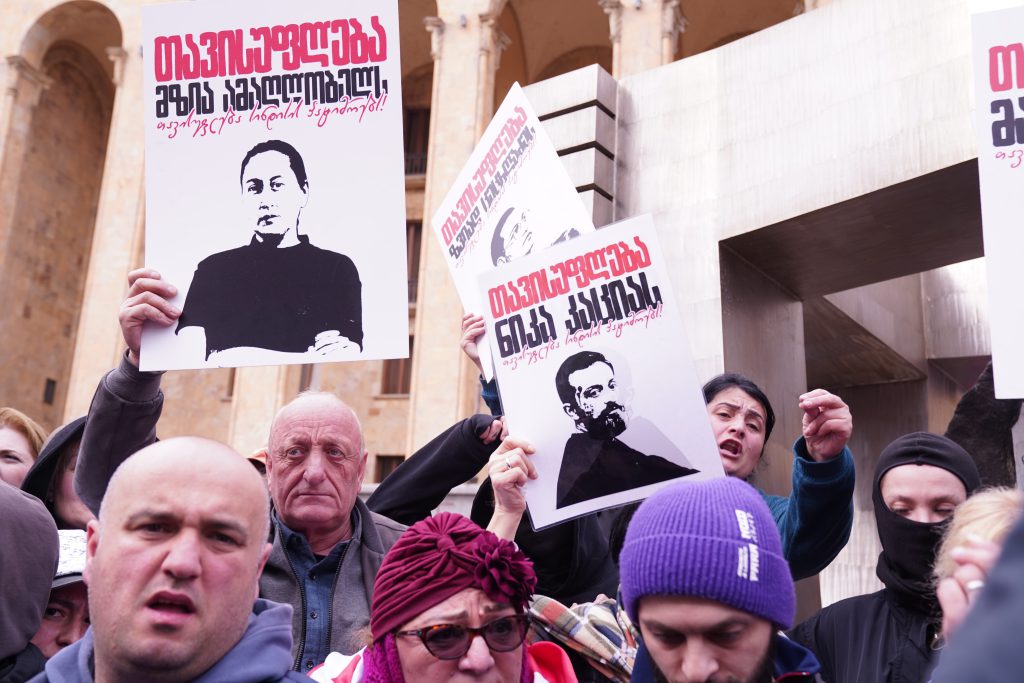
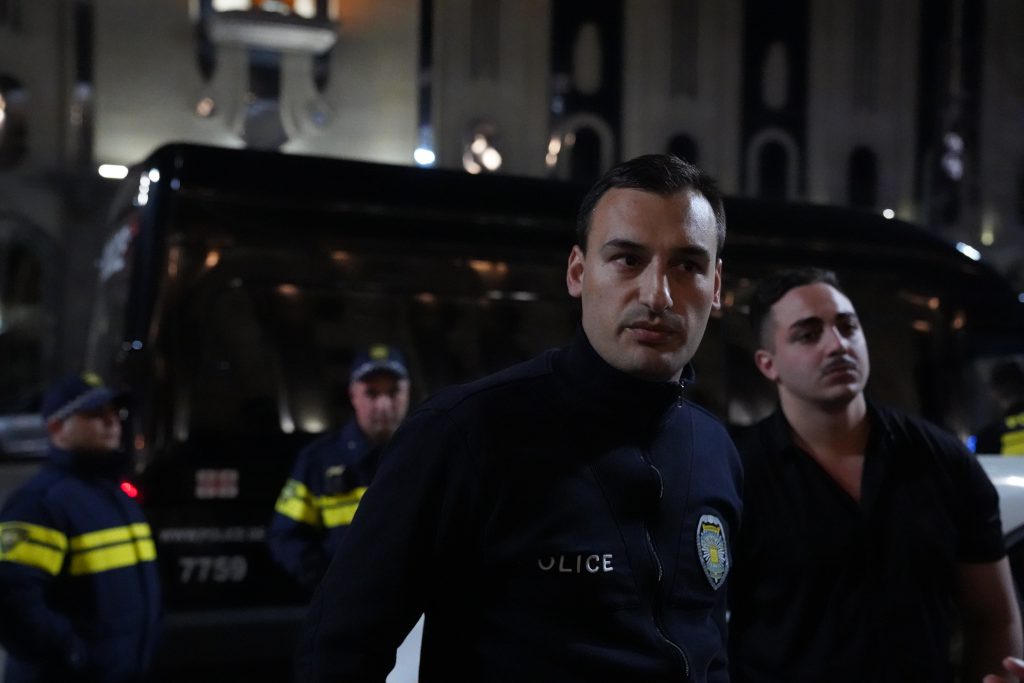
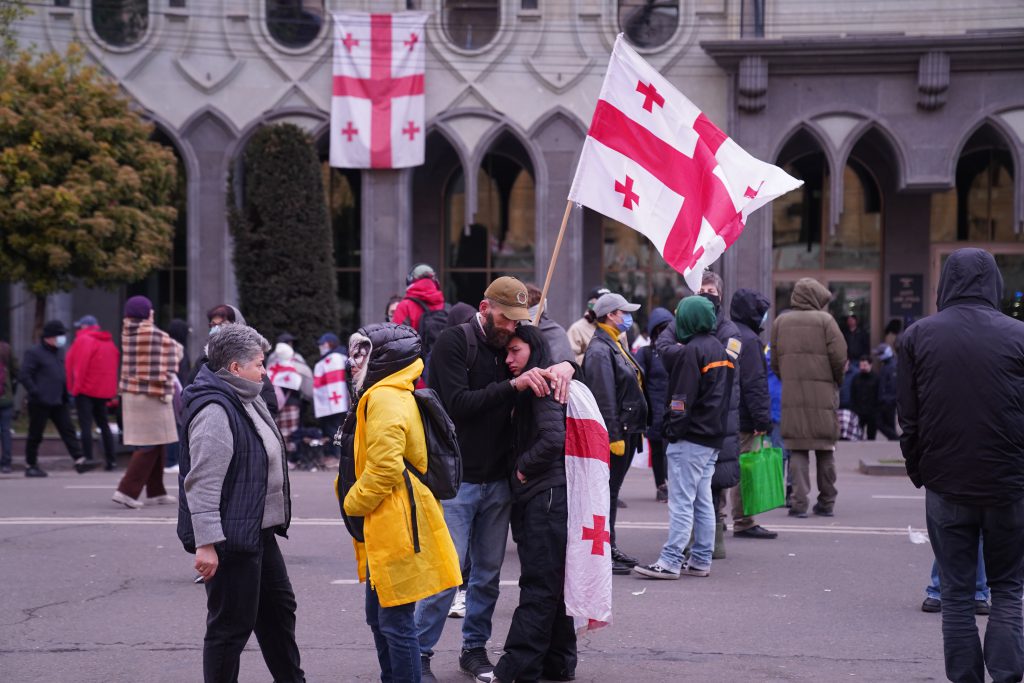
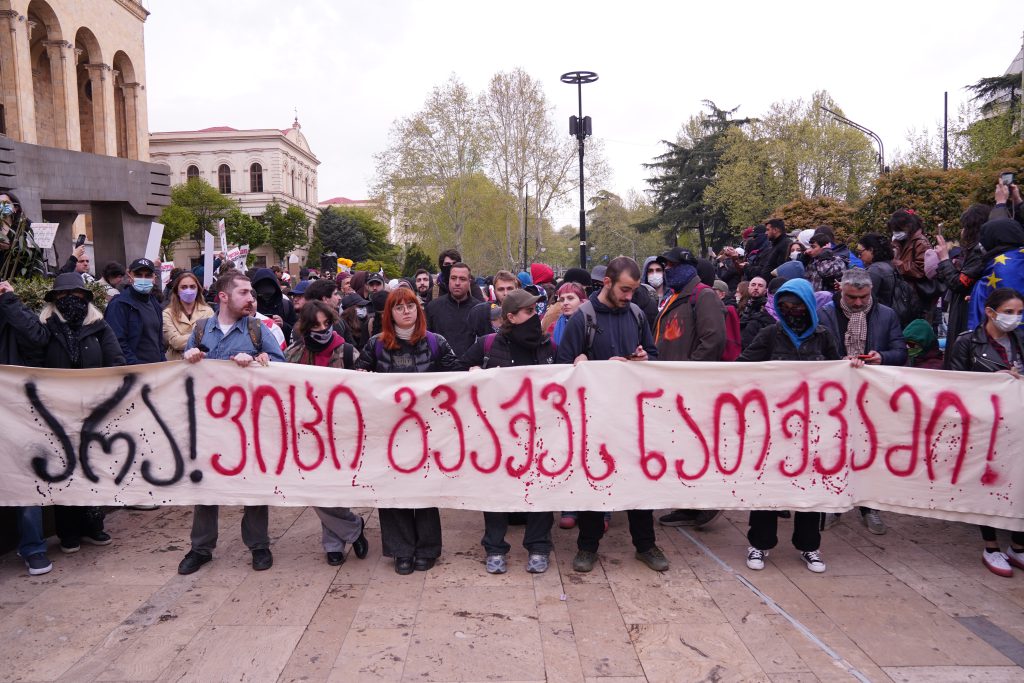
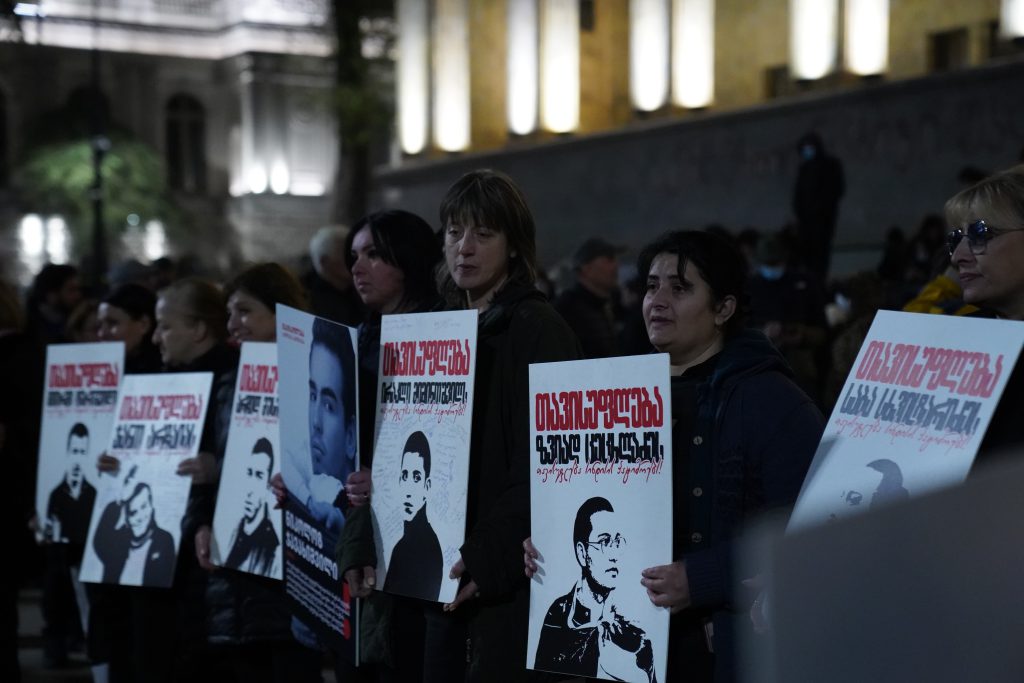
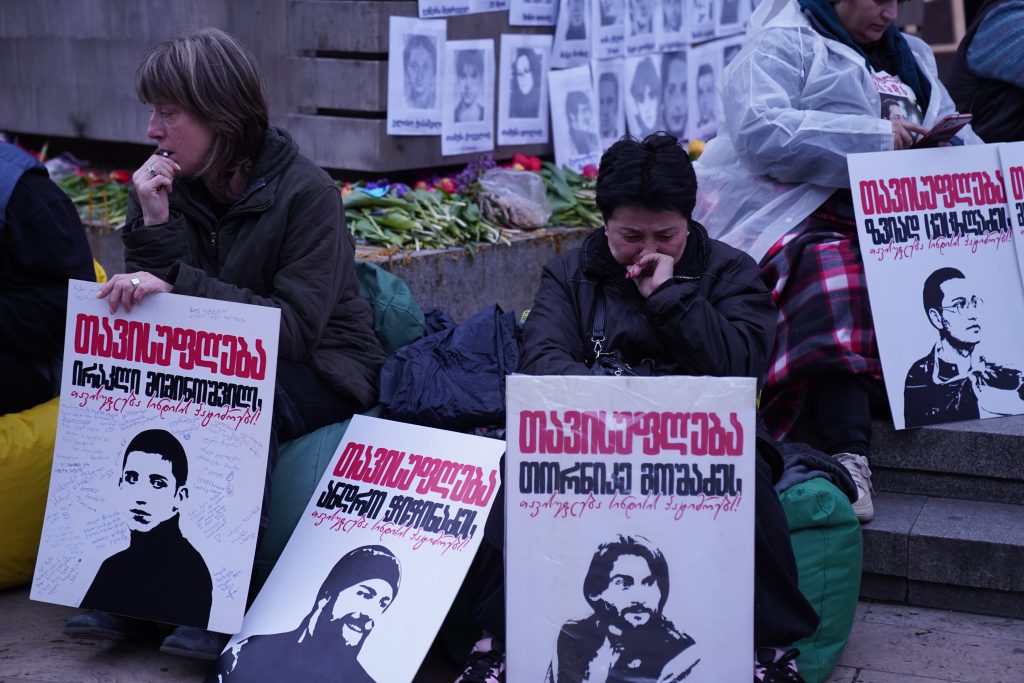
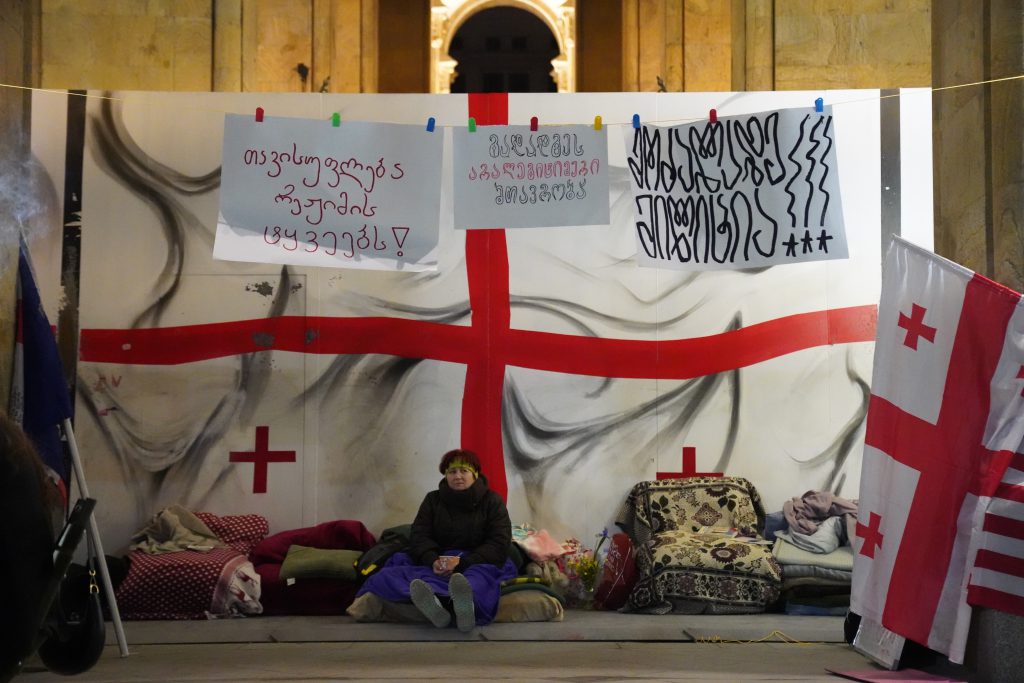
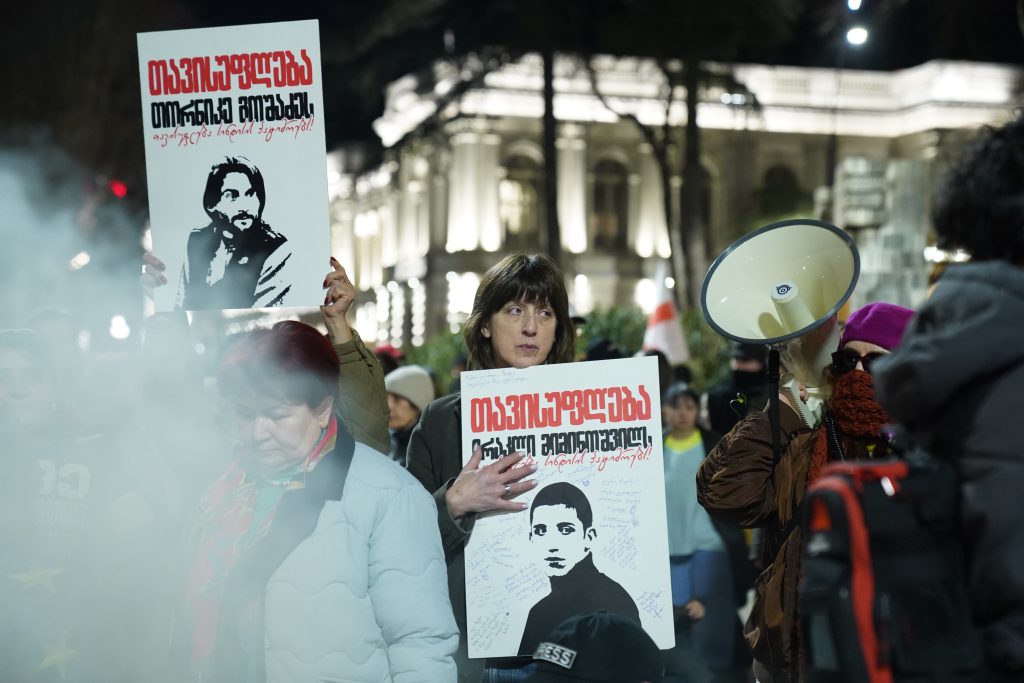
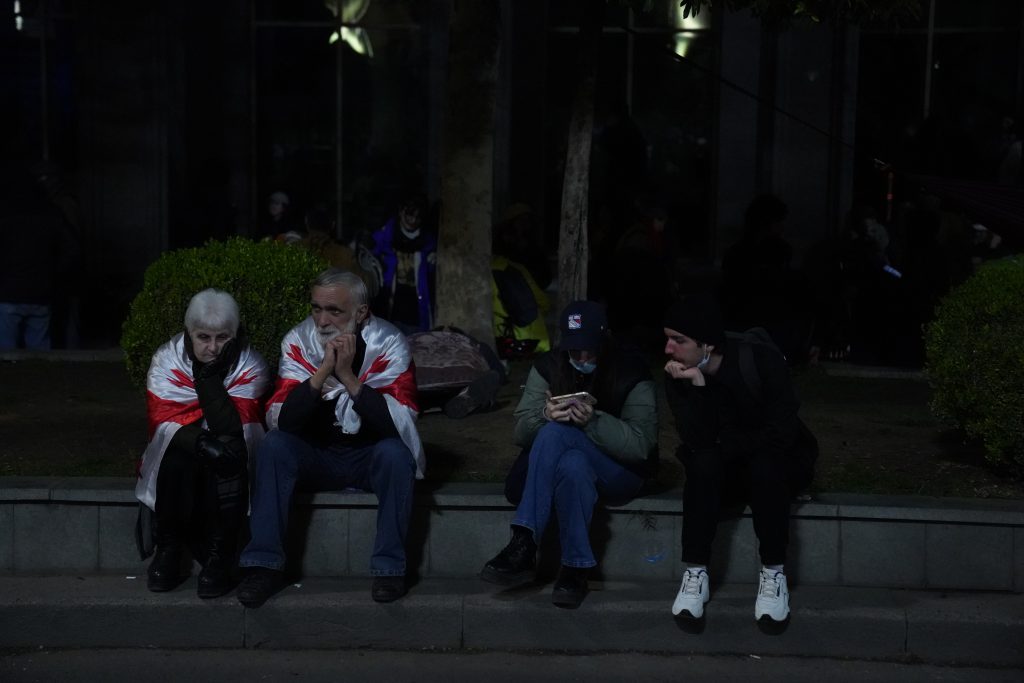
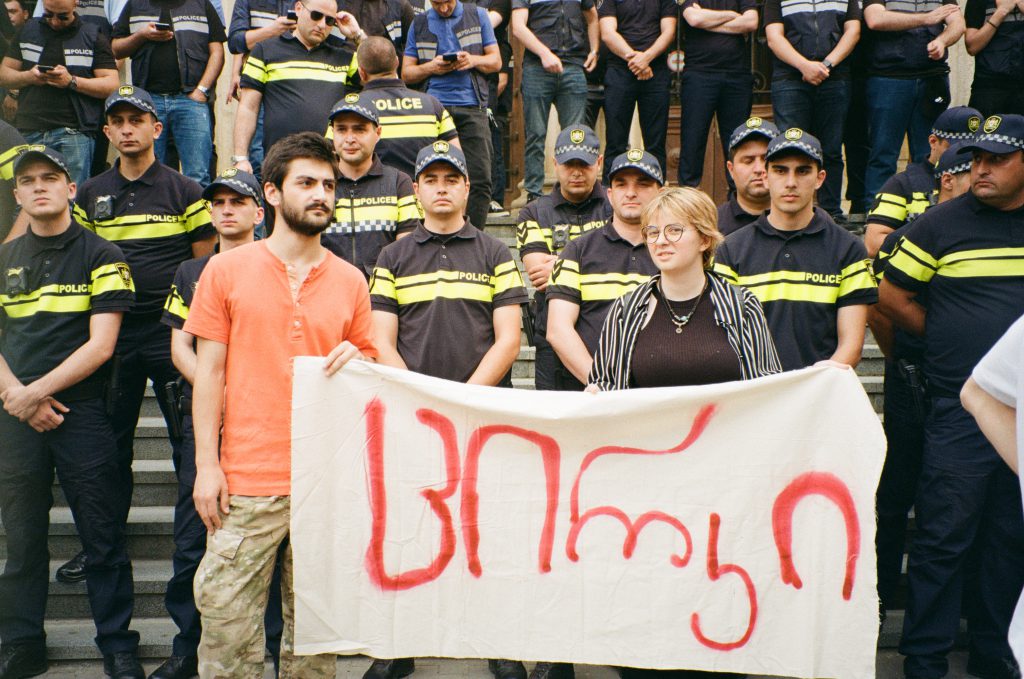
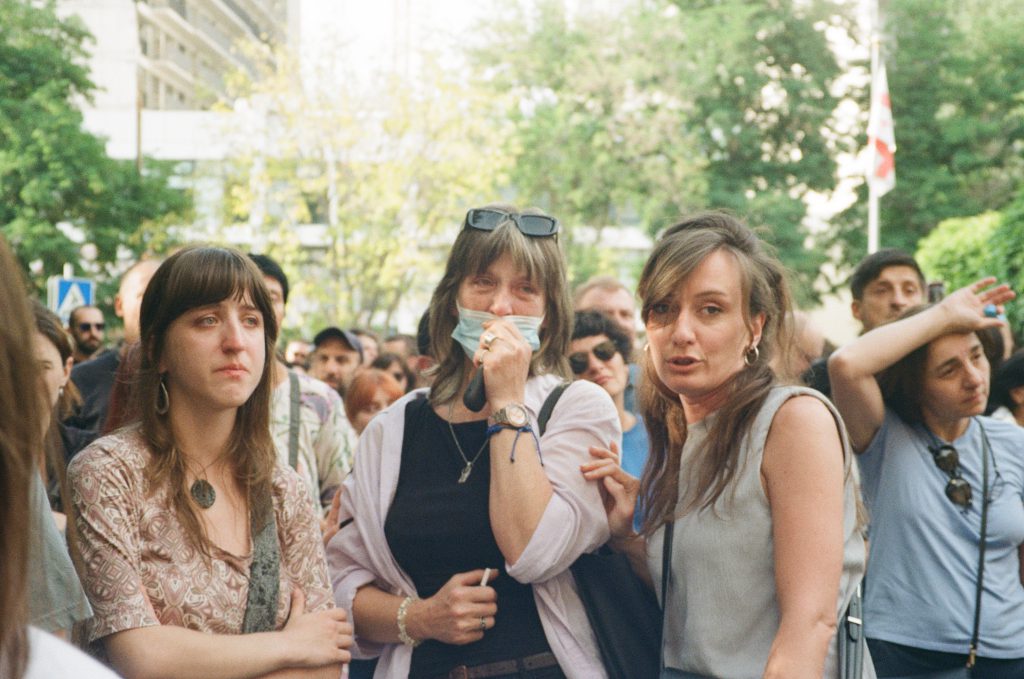
Authorities launched these cases under the pretext of refusing to testify to a parliamentary commission investigating alleged wrongdoing under jailed ex-president Mikheil Saakashvili. However, many see this as part of a broader campaign to silence opposition voices and consolidate GD’s grip on power.
The director of the Social Justice Centre, Tamta Mikeladze, expressed the growing alarm: “Does that mean all opposition leaders should be imprisoned? This is not just about destroying one political camp—it is the abolition of political space itself.”
Criminalizing Protest and Resistance
As protests erupted after the EU suspension announcement, the government introduced a flurry of laws designed to suppress public gatherings. Protesters are now banned from wearing face coverings, carrying laser pointers or fireworks, and even entering buildings without permission to demonstrate. What is the punishment? Fines, jail time, and criminal records. One of the many detained protesters, 21-year-old Mate Devidze, was held in pre-trial detention since November 19, and sentenced to 4.6 years in prison on June 12, for allegedly assaulting police during an anti-government protest, prompting public outcry. This is the first incident of a protester being imprisoned.
Even journalists covering the protests haven’t been spared. OC Media’s founder Mariam Nikuradze has accumulated fines totalling 20,000 Georgian lari (approx. 6,250 euros) simply for documenting demonstrations. Preventative detention has also been introduced, allowing authorities to arrest people they suspect might commit a crime.
Just recently, acclaimed Georgian poet Zviad Ratiani was detained during a protest. He joined dozens of others who had taken to the streets to express their frustration and fear over the country’s political direction. His arrest sent shockwaves through Georgia’s cultural community and reinforced fears that no one—not even artists or intellectuals—is safe from political retribution.
Rewriting the Rules of Democracy
Changes to electoral laws have further undermined the integrity of the democratic process. Georgian Dream altered the rules governing the Central Electoral Commission (CEC), allowing the ruling party to make decisions with a simple majority. Election observers have been stripped of their ability to verify voter identities, while restrictions on documenting irregularities have increased.
At the same time, laws were passed to eliminate civil society’s mandatory involvement in policymaking, and NGOs must now seek government approval to receive foreign grants.
The government has also targeted marginalized communities. A sweeping anti-LGBTQ+ legislative package banned so-called “LGBT propaganda” in schools, media, and public spaces, and eliminated gender-affirming healthcare entirely. Gender quotas were removed, and even the term “gender” was erased from official documents.
An Authoritarian Future in the Making
The full picture is clear: Georgian Dream has executed a strategic and ruthless consolidation of power, dismantling institutions that could challenge its authority. Civil society is under siege. The judiciary is politicized. Independent journalism is criminalized. Dissent is punished.
And it’s not over.
In the broader context of global instability—wars in Ukraine and Gaza, democratic erosion in Hungary and Turkey, rising authoritarianism worldwide—Georgia’s crisis feels both local and global. The country that once inspired the region with its pro-European ambitions is now a cautionary tale.
But the story is not finished. Protests continue, though under increasingly repressive conditions. Civic leaders, students, and artists still take to the streets, demanding accountability and a return to democracy. Their struggle may seem endless, and their tools may be limited—but they are refusing to surrender.
As Tamta Mikeladze warned, the disappearance of rational governance is a dangerous disorder that will cost us all. Georgia may be ruled by fear today, but it is also fueled by courage. The question is whether that courage will be enough—before it’s too late. Can society reach a consensus on how to resist authoritarianism?
LELA JOBAVA graduated from Caucasus University with a degree in European Studies. She is a conflict researcher and a journalist from Gali, Abkhazia. Driven by her passion for conflict-driven reporting, storytelling, and filmmaking, Lela is committed to covering diverse ethnic, religious, linguistic, and gender-related topics, and crafting distinctive stories that highlight unique perspectives. Lela is particularly invested in providing coverage of current affairs and uncovering the untold stories of the unhurried pace of life in Abkhazia, which has remained concealed under the veil of globalization. The themes of memory and identity are integral elements in her work.



